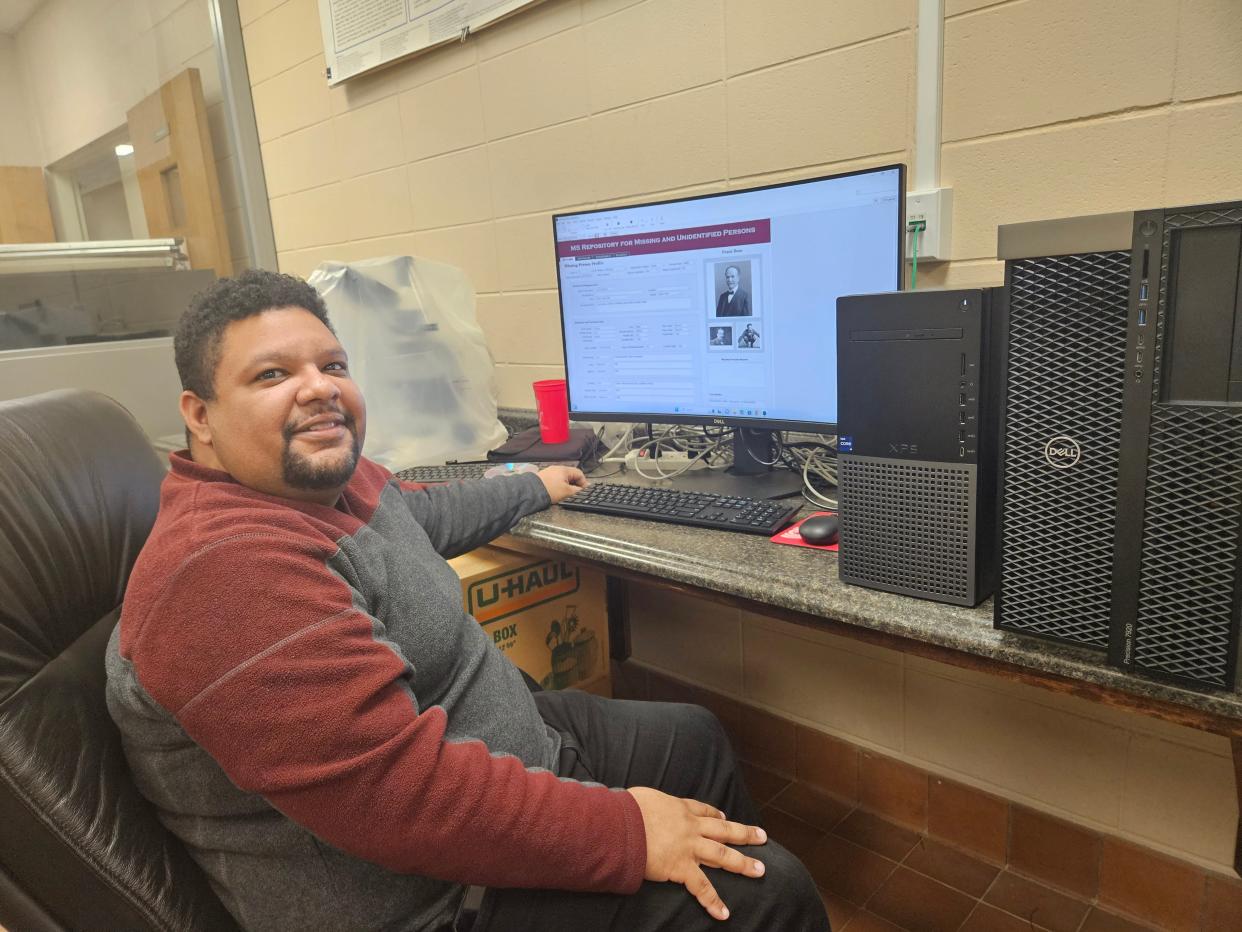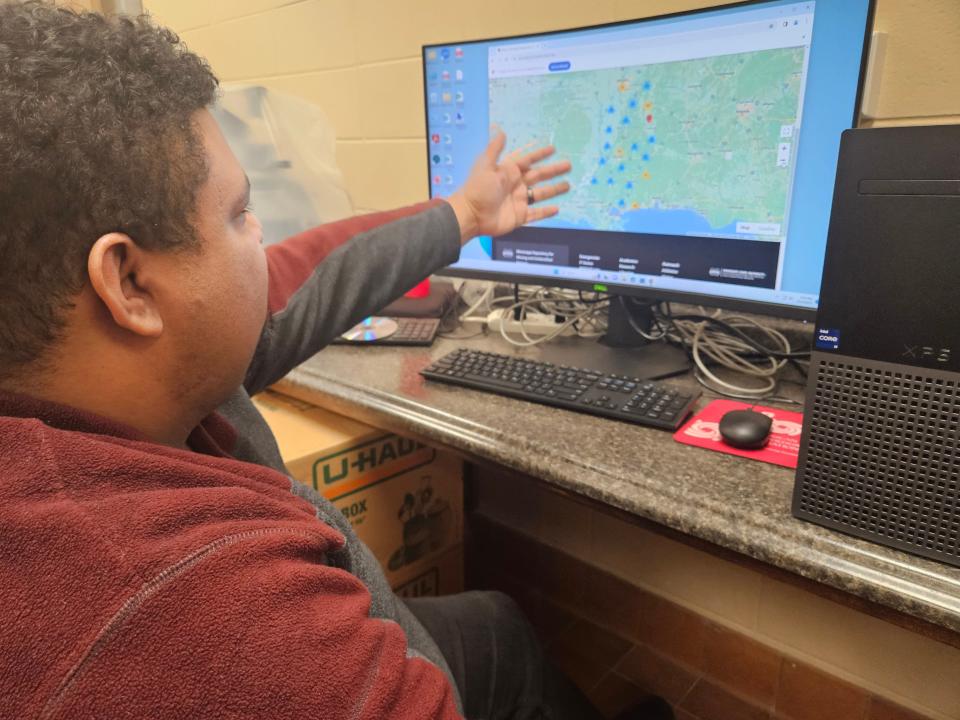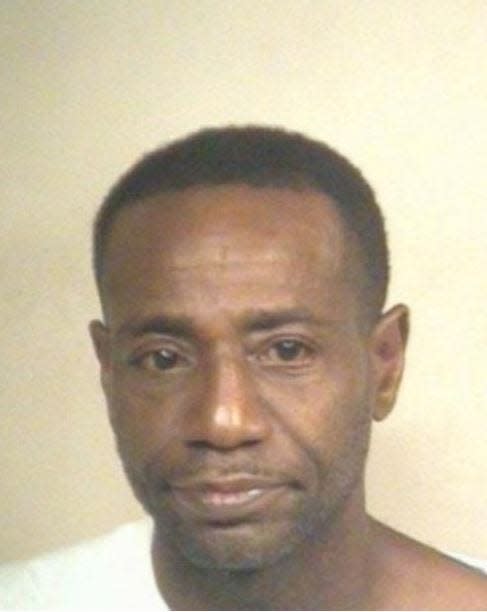Mississippi State professor creates state's first missing persons database

When Jesse Goliath moved to Mississippi in 2021, he was surprised to learn there was no official statewide database for missing and unidentified people.
Goliath is a forensic anthropologist and assistant professor of anthropology in Mississippi State University's Department of Anthropology and Middle Eastern Studies. He is also a senior research associate for the Cobb Institute of Archaeology.
In his capacity at Mississippi State, Goliath set out to create a database that would help connect the state's missing and unidentified. To date, there are more than 1,000 names in the database with plenty more still to be added, he said.
He acquired Louisiana State University's program that it used to build its database for Louisiana's missing and unidentified people and began assembling one for Mississippi, gathering information from different sources.
Goliath searched for nonprofit organizations that featured missing people and began gathering information from those websites. He also recruited undergraduate students to comb through social media to find more reports of missing people.
Before the database was created, Goliath helped a team from Pontotoc County locate the body of Felicia Cox, who had been missing since 2007.
Her brother-in-law David Neal Cox told authorities where her body could be located shortly before he was executed in December 2021 for the murder of his wife Kim Kirk Cox and the sexual assault of her young daughter.
The District 1 district attorney's office contacted Mississippi State for assistance. Goliath was able to help the sheriff's office locate the body in the general area where David Cox said she would be located.
"They contacted us to say, 'Hey, can you help us find this person based on this map,'" Goliath said.
Goliath and his team used experience and ground-penetrating radar to help locate Felicia Cox's body in the general area of where David Cox said Felicia Cox would be buried.
Pontotoc County Sheriff Leo Mask said Goliath's help was invaluable.
"It worked out really well," Mask said. "They did a tremendous job. It was not a great job. It was a tremendous job, I promise you that."
Mask said a statewide database is needed and opens the door to solving more missing and unidentified person's cases.
"That would be a lot of help to us," he said.
It was at that time Goliath realized Mississippi needed a missing persons database.
"My next thought was, 'If Felicia has been missing for so long and they knew who it was, how many other cases do we have in Mississippi where it is just a lack of information or awareness or sharing.' I asked law enforcement. I asked many other people, 'Is there a database for this? Is there anyone tracking this information?' and everyone was saying no."
Goliath soon after sought funding for and started the missing and unidentified persons' database for Mississippi.
"Missing people is a silent epidemic, especially for women of color," Goliath said.

It was around the same time that media attention was focused on the disappearance of Gabby Petito and the search for her boyfriend Brian Laundrie.
"She was getting so much press that other people were finding missing people along the way," Goliath said. "The question was, for me, 'What is happening in rural places like Mississippi where there isn't a huge social media presence or big cities or a lot of resources.'"
Goliath's work in documenting missing people goes back to when he did contract work in Hawaii for the Department of Defense's POW/MIA accounting agency, which is responsible for identifying missing service members for World War II, Korea and other conflicts.
"The idea of the missing persons kind of thing is something I've been doing for a while," he said. "It will help bring closure to families in that way."

The Mississippi Repository for Missing and Unidentified Persons, launched in November at missinginms.msstate.edu. It is accessible to the public and there is a private area where law enforcement and other officials can access more detailed information about a missing or unidentified person that could help in their investigation.
“We want all Mississippians to know who is missing in their state and be able to report when their loved ones are missing," Goliath said. "This repository will help law enforcement direct their efforts and resources to known regions of missing persons. With the unidentified persons data, we could potentially solve cold cases that exist in the state.”
Goliath is working with Assistant Professor of Anthropology Jordan Lynton Cox, who uses geospatial analysis to determine medicolegal and health disparities across the state. According to her bio on the Missing website, "her primary research uses interdisciplinary approaches like story mapping and geospatial analysis to answer questions of race, diaspora, transnationalism, governance and globalization."
The third person on Goliath's team is Mississippi State University Police Lt. Bo Shelton, who is a cold case investigator.
Goliath said the team's work on the database and help from law enforcement and community members, maybe some of the cold cases can begin to be solved.
"Sadly, it is usually the marginalized of our population, the people who are sex-trafficked, the poorest of the poor, the people on the outskirts," Goliath said. "If you're not advocating for them, then no one is going to."

Examples of a few people in the database
Angela Freeman was 17 years old when she was last seen at Pizza Hut in Petal on Sept. 10, 1993. Although she has been declared legally dead, her body was never found and no one has ever been charged in connection with her disappearance.
Andrew Funchess was last seen Sept. 1, 2016, driving a white 2006 Monte Carlo on George Washington Drive in Jackson.
Elton Jackson was last seen Jan. 3, 2017, on Willow Run in Jackson, apparently on his way to a store.
To learn more
Search the Mississippi Repository for Missing and Unidentified Persons, visit missinginms.msstate.edu.
Follow updates on the database on Facebook at Mississippi Repository for Missing and Unidentified Persons; on X @missinginms; and on Instagram @missinginms.
For more infrmation, email missinginms@msstate.edu.
Do you have a story to share? Contact Lici Beveridge at lbeveridge@gannett.com. Follow her on Twitter @licibev or Facebook at facebook.com/licibeveridge.
This article originally appeared on Hattiesburg American: Database provides information on missing people in Mississippi

